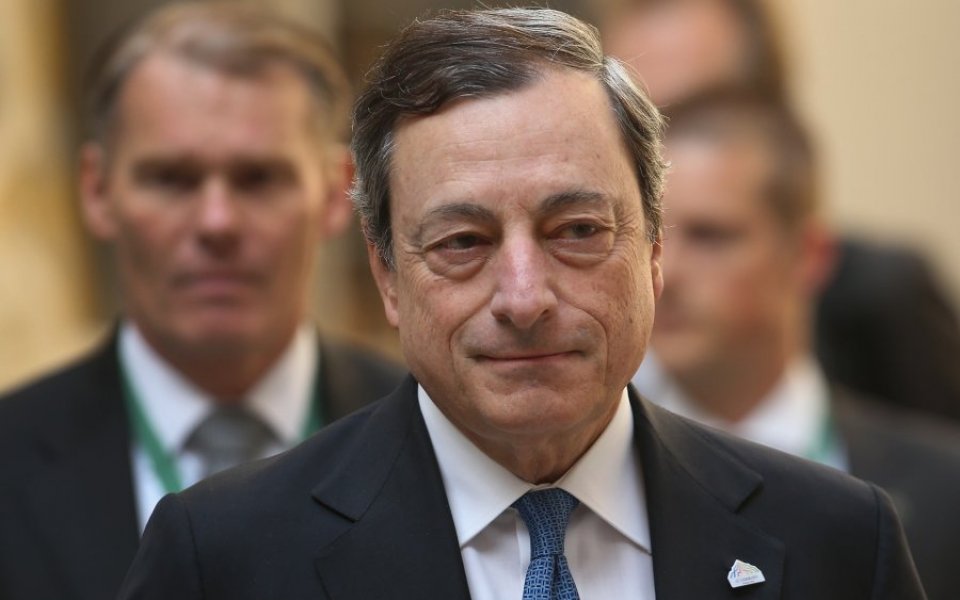Euro rises as European Central Bank boss Mario Draghi is expected to ramp up monetary stimulus programme at the December meeting

This morning investors are gearing up for a widely anticipated early Christmas present from the European Central Bank (ECB), due later today.
The ECB is expected to ramp up its monetary stimulus programme for the embattled Eurozone economy, against a backdrop of persistently low inflation and disappointing lending by banks.
There are a number of ways the Bank could do this. The ECB could announce another 0.1 to 0.2 percentage point cut to its deposit rate, or changes to its €60bn (£42.5bn) a month asset-buying programme.
Read more: Drop in core inflation gives ECB extra incentive to boost asset purchases
Some of the more zany ideas which have been floated include a two-tier deposit rate. This would discourage banks and businesses from parking cash with the ECB and boost lending in the single currency bloc.
ECB officials have repeatedly promised to boost inflation “as quickly as possible”. Eurozone prices rose by just 0.1 per cent on an annual basis in November, significantly undershooting the Bank’s target of around two per cent.
The Bank hopes easing monetary policy further will encourage lending by banks to businesses and consumers. This would boost demand, in turn stoking inflation and growth.
Today’s announcement comes amid mounting speculation that the United States Federal Reserve is gearing up to tighten monetary policy for the first time in nearly a decade. This has driven the euro lower against the dollar, and the ECB is keen for this to continue.
Read more: Standard & Poor's thinks the ECB will extend its quantitative easing programme
“The main reason why the ECB sees a need to signal more easing, even though it is not even halfway through its ongoing quantitative easing programme, is that it wishes to prevent euro appreciation," SEB analysts said in a note.
"A weak currency has been one important driving force behind the recovery, and with a hesitant Bank of England postponing its rate hikes even futher into the future, a euro rebound is a threat."